Mitsubishi, a name synonymous with innovation and precision engineering, has long been regarded as a stalwart in the automotive industry. Renowned for its cutting-edge technology and commitment to sustainability, Mitsubishi Cars has earned a reputation for delivering exceptional performance, reliability, and value.
With an illustrious history that spans over a century, Mitsubishi has consistently pushed boundaries to redefine automotive standards. From pioneering electric vehicles to crafting rugged yet refined SUVs and sporty compact cars, Mitsubishi stands at the forefront of automotive ingenuity.
The History Of Mitsubishi Cars
Early Beginnings
In 1917, Mitsubishi Shipbuilding Co. Ltd., a subsidiary of Mitsubishi Heavy Industries, unveiled the Model A, which marked Japan’s inaugural mass-produced car. This custom-crafted sedan was both costly and produced in limited quantities, ultimately resulting in its discontinuation in 1921.
Expansion and Growth
Mitsubishi Heavy Industries (MHI) was established in 1934 through the merger of Mitsubishi Shipbuilding and Mitsubishi Aircraft Co. The company initially specialized in manufacturing aircraft, ships, and machinery, as well as creating prototype vehicles.
In the 1960s, MHI expanded its production to include passenger cars, introducing the Mitsubishi 500 as its first compact car tailored for the burgeoning Japanese market.
Global Expansion
In 1970, Mitsubishi Motors Corporation (MMC) was founded as an independent company from MHI. During the following decades, particularly the 1970s and 1980s, MMC experienced significant growth and development.
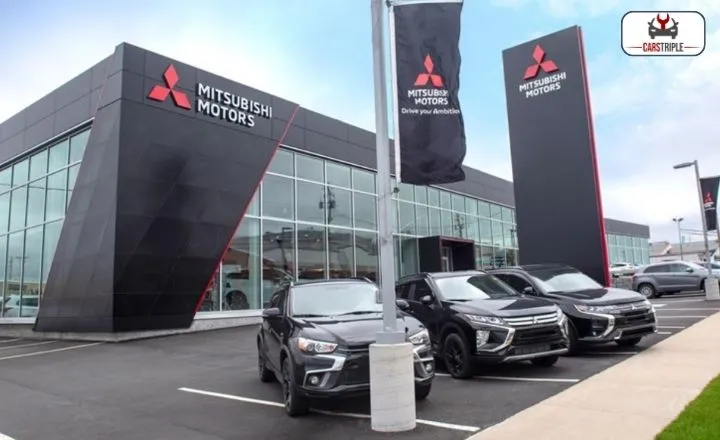
This period saw the launch of well-received models such as the Galant, Lancer, and Pajero, contributing to Mitsubishi vehicles’ reputation for being robust, high-performing, and innovative. Subsequently, MMC began exporting its vehicles to global markets.
Partnership with Chrysler
During the 1970s, Mitsubishi formed a collaboration with Chrysler, enabling their cars to be marketed under the Dodge and Plymouth labels in the United States. This alliance was instrumental in Mitsubishi’s expansion into the American market and bolstered its international footprint.
Financial Challenges and Alliances
In the 1990s and early 2000s, Mitsubishi encountered financial challenges stemming from economic downturns and a series of recalls. To address these issues, the company formed strategic partnerships with Volvo, PSA Peugeot Citroën, and Nissan.
In 2016, Nissan gained majority ownership of Mitsubishi Motors, integrating it into the Renault-Nissan-Mitsubishi Alliance. Throughout its history, Mitsubishi has prioritized innovation and technological progress.
From pioneering turbocharged engines in the 1980s to leading the way in electric vehicles with the i-MiEV in 2009, Mitsubishi has consistently been a trailblazer in automotive technology.
Today, the company continues to manufacture a diverse range of vehicles, including sedans, hatchbacks, SUVs, and electric vehicles, to meet varied customer needs while upholding its reputation as a dependable automaker.
Are Mitsubishi Good Cars?
Exploring the historical background of Mitsubishi cars can help in evaluating their suitability as a choice by considering the factors that influence a vehicle’s quality and appeal.
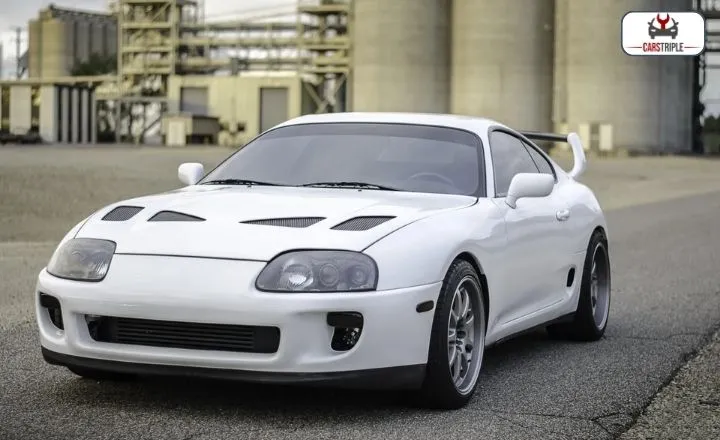
1. Performance
Mitsubishi’s performance in its SUV lineup has been solid, showcasing a mix of reliability, capability, and versatility. From the popular Outlander to the rugged Pajero Sport, Mitsubishi’s SUVs offer a combination of sleek design and off-road prowess that appeals to a wide range of drivers.
Mitsubishi’s foray into electric and hybrid vehicles, like the Outlander PHEV, demonstrates its commitment to sustainability without compromising performance. By integrating efficient powertrains with their renowned reliability, Mitsubishi is positioning itself as a strong contender in the green vehicle segment.
2. Reliability
The robust performance of Mitsubishi vehicles places them at the top of the reliability standings, earning them a reputation for enduring dependability. This accomplishment not only reflects the brand’s commitment to engineering excellence but also its unwavering dedication to meeting and surpassing customer expectations.
Mitsubishi’s competitive warranty package further solidifies its position as a frontrunner in the automotive industry. By offering an extensive and comprehensive warranty, Mitsubishi sets itself apart from competitors, assuring customers of long-term protection and peace of mind.
3. Affordability
When it comes to affordability in the automotive world, Mitsubishi has consistently proven itself to be a reliable and cost-effective option. With a reputation for offering dependable vehicles at competitive prices, Mitsubishi has become synonymous with value.
From their fuel-efficient sedans to their rugged SUVs, Mitsubishi offers a range of options that cater to different budgetary needs without compromising on quality.
The factor that makes Mitsubishi a standout choice for affordability is its commitment to technological advancements. With innovative features into their vehicles, while keeping costs reasonable, Mitsubishi continues to redefine what it means to offer good cars at accessible price points.
4. Safety
When it comes to safety, Mitsubishi has consistently made strides to prioritize the well-being of its drivers and passengers. From advanced airbag systems to cutting-edge collision avoidance technology, Mitsubishi cars have built a reputation for providing peace of mind on the road.
The brand’s commitment to safety is evident in its consistent inclusion of standard safety features across its lineup, making it a dependable choice for those seeking a secure driving experience.
Mitsubishi’s dedication to safety extends beyond crash protection and avoidance systems. The brand’s focus on durability and reliability also contributes significantly to overall safety by reducing the likelihood of mechanical failures or malfunctions while driving.
This holistic approach underscores that safety isn’t just about avoiding accidents but also about ensuring that the vehicle itself remains dependable and solidly built over time. With these factors in mind, it’s clear that Mitsubishi may indeed be considered among the leaders in providing safe and reliable vehicles for today’s discerning consumers.
5. Innovation and Technology
Innovation and technology have revolutionized the automotive industry, and Mitsubishi has been at the forefront of embracing cutting-edge advancements. With an unwavering commitment to pushing boundaries, Mitsubishi has introduced electric vehicle technology that promises sustainable mobility for future generations.
From lane departure warning systems to adaptive cruise control, these innovations not only provide a safer driving experience but also showcase how Mitsubishi consistently elevates its technological capabilities within its vehicles.
As consumers increasingly seek out tech-savvy automakers, Mitsubishi’s commitment to innovation ensures they remain a formidable player in the evolving automotive landscape.
When considering whether Mitsubishi cars are good, it’s evident that their commitment to innovation and incorporating cutting-edge technology makes them a compelling choice for those seeking modernity and reliability in their vehicles.
Are Mitsubishi Reliable?
Mitsubishi has a long-standing reputation for building dependable and durable vehicles. With a robust lineup of cars, SUVs, and trucks, Mitsubishi continues to offer reliability at an affordable price point.
Like any car manufacturer, Mitsubishi has faced its share of challenges in terms of reliability. Some models have been subject to recalls and technical issues over the years. Recent advancements in manufacturing processes and quality control measures have significantly improved Mitsubishi’s overall reliability ratings.
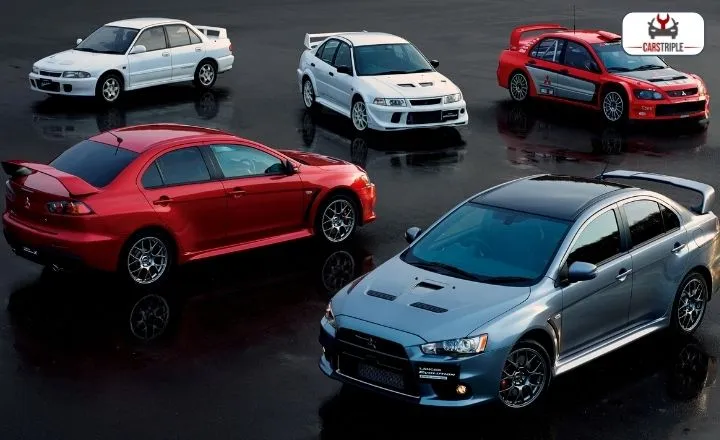
Is Mitsubishi Safe?
Mitsubishi has long been known for producing reliable and safe vehicles, with a commitment to incorporating the latest safety technologies into their lineup. The company consistently earns high marks in safety ratings and crash tests, showcasing its dedication to keeping passengers protected on the road.
Beyond passive safety features like airbags and seatbelts, Mitsubishi also offers advanced driver-assistance systems that help prevent accidents before they occur.
One striking example of Mitsubishi’s commitment to safety is seen in its inclusion of features such as adaptive cruise control, automatic emergency braking, and lane departure warning across many of its models.
The brand’s focus on vehicle stability control and all-wheel-drive systems contributes significantly to safer driving experiences in various road conditions. With a proactive approach to safety innovation, Mitsubishi continues to prioritize the well-being of drivers and passengers alike.
Are Mitsubishis expensive to maintain?
Mitsubishi cars are generally not considered expensive to maintain compared to some luxury brands. Like any vehicle, the cost of maintenance can vary depending on the specific model and its age.
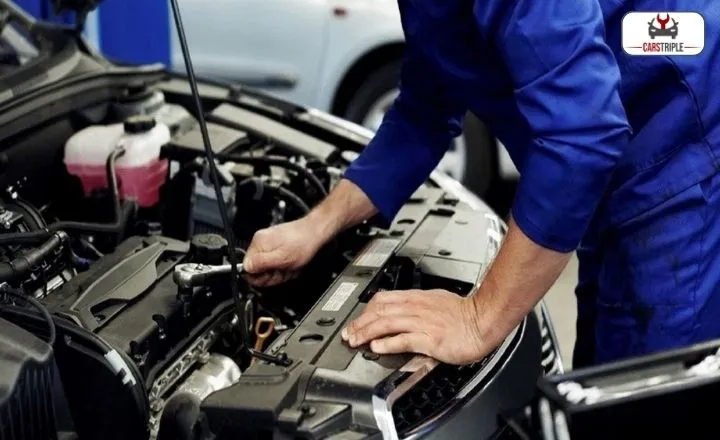
Mitsubishi vehicles are known for their reliability and solid build quality, which can translate to lower maintenance costs over time.
One factor that can contribute to Mitsubishi’s relatively low maintenance costs is the brand’s commitment to using reliable components and technology in their vehicles. This means that owners may experience fewer unexpected repairs or part failures compared to other brands.
Another aspect worth considering is that regular maintenance such as oil changes, fluid flushes, and brake pad replacements is relatively straightforward for most Mitsubishi models, making them more cost-effective to keep in top condition.
Is Mitsubishi Good On Gas?
Mitsubishi has made a name for itself as an automaker well-known for producing fuel-efficient vehicles, and this reputation is well-deserved. The brand’s commitment to creating cars that are good on gas can be seen across its lineup, from the compact Mirage to the sporty Outlander.
Mitsubishi achieves this through innovative engineering and design, ensuring that their vehicles offer impressive fuel efficiency without sacrificing performance or style.
One standout model in Mitsubishi’s lineup is the Mirage, which consistently ranks as one of the most fuel-efficient non-hybrid cars on the market. With its lightweight build and efficient engine, the Mirage delivers exceptional gas mileage in both city and highway driving conditions.
Are Mitsubishi Fun To Drive?
Mitsubishi has a rich heritage of producing fun-to-drive cars that cater to enthusiasts and daily commuters alike. The dynamic handling and precise steering of models such as the Mitsubishi Lancer Evolution and Eclipse Cross invite drivers to experience the thrills of the open road.
Mitsubishi’s innovative Super All-Wheel Control (S-AWC) system provides exceptional grip and stability, enhancing the driving experience in various weather conditions. This combination of athleticism and practicality makes Mitsubishi vehicles a compelling choice for those seeking an enjoyable driving experience.
These eco-friendly options offer drivers an exhilarating yet sustainable driving experience, taking advantage of advanced technologies while reducing environmental impact.
With their focus on performance, technology, and sustainability, it’s clear that Mitsubishi remains dedicated to delivering cars that are not only fun to drive but also aligned with modern consumers’ values.
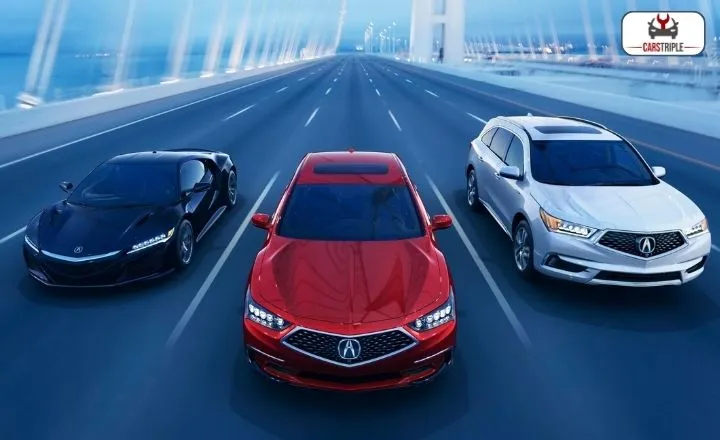
What’s The Best Mitsubishi?
When it comes to Mitsubishi cars, the debate over which model reigns supreme is a hotly contested topic. For those seeking a blend of performance, reliability, and style, the Mitsubishi Lancer Evolution often tops the list. With its turbocharged engine, all-wheel drive system, and aggressive styling, the Evo has cemented itself as a favorite among automotive enthusiasts.
For those in search of a more family-friendly option without compromising on technology and comfort, the Mitsubishi Outlander stands out as an exemplary choice. Boasting spacious interiors, advanced safety features, and impressive fuel efficiency, the Outlander provides practicality without sacrificing modern amenities.
What Are The Common Mitsubishi Problems?
Mitsubishi cars have gained a reputation for reliability, but there are some common issues that owners should be aware of. One problem that often surfaces in Mitsubishi vehicles is the transmission.
Some models, such as the Outlander and Lancer, have been known to experience transmission-related issues, including rough shifting and even complete failure. Another prevalent concern lies with the electrical system, with reports of faulty sensors leading to warning lights appearing on the dashboard.
It’s essential to remember that not all Mitsubishi vehicles will face these problems. Some models may run smoothly without any hiccups for several years. Regular maintenance and timely servicing can play a crucial role in preventing these common issues from occurring.
By staying proactive about vehicle care and staying informed about potential problems specific to their model, Mitsubishi owners can ensure a smoother driving experience with their cars.
Most Reliable Mitsubishi Models
Mitsubishi has a strong track record of creating dependable models over the years. Among them, the Mitsubishi Lancer stands out as a durable and cost-effective compact sedan.
The Outlander, a mid-size SUV, has earned recognition for its reliability, especially the plug-in hybrid version (Outlander PHEV) which is praised for its innovative technology and trustworthiness.
The Mirage, a well-known model from Mitsubishi, is a cost-effective subcompact car that is known for its low maintenance costs and minimal mechanical problems.
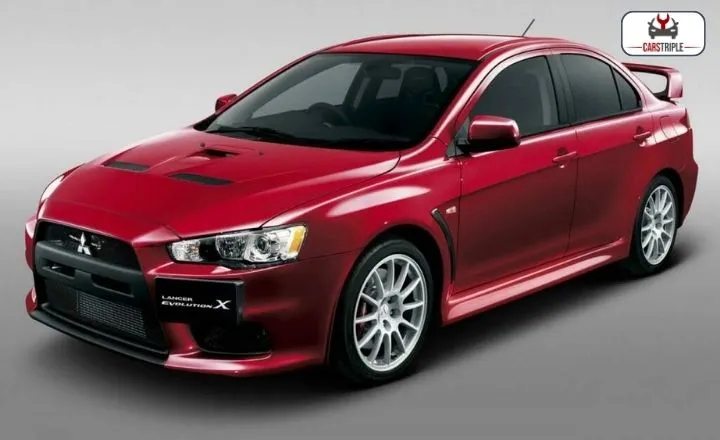
These vehicles have consistently shown impressive reliability and have satisfied many owners, making them a popular option among those looking to purchase a Mitsubishi car.
Least Reliable Mitsubishi Models
Certain Mitsubishi models have encountered a variety of issues, despite the brand’s reputation for reliability. For example, the Mitsubishi Galant, a mid-size sedan that was discontinued in 2012, had its share of problems, such as engine and transmission issues, as well as electrical and suspension problems.
Between 2004 and 2011, the mid-size SUV called the Endeavor had its fair share of reliability issues, including transmission failures and air conditioning system problems.
It’s worth mentioning that these models are no longer being made, and Mitsubishi has since made substantial enhancements in reliability and quality across its current range of vehicles.
Is Mitsubishi A Good Car To Buy Used?
Mitsubishi is a brand with a mixed reputation when it comes to buying used cars. While some models, such as the Lancer Evolution and Outlander, have garnered praise for their reliability and performance, others have been plagued by issues such as poor fuel economy and spotty build quality.
One advantage of purchasing a used Mitsubishi is its affordability. Compared to other brands, Mitsubishis tend to depreciate quickly, making them an attractive option for budget-conscious buyers.
It’s important to factor in potential maintenance costs, as certain models may require more frequent repairs or have higher servicing expenses than their counterparts from competing manufacturers.
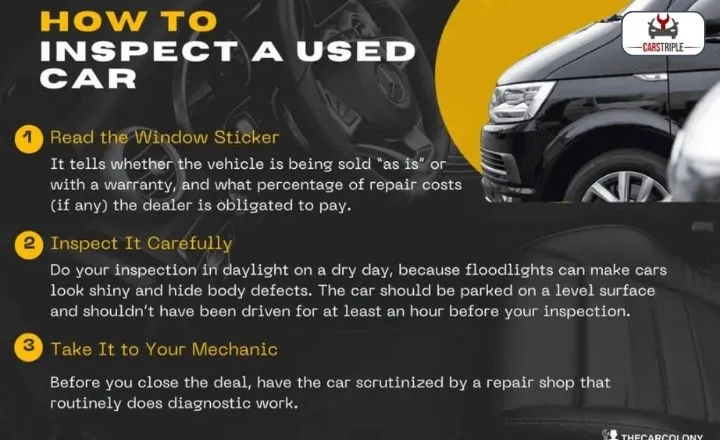
Is Mitsubishi As Reliable As Honda?
Mitsubishi has made impressive strides in recent years. While Honda has long been lauded for its solid reputation, Mitsubishi has quietly improved the dependability of its vehicles. With a renewed focus on quality control and engineering, Mitsubishi cars are now competing fiercely with Honda in terms of reliability.
As consumers demand more from their vehicles, Mitsubishi is rising to the challenge by delivering reliable and durable cars that rival those of Honda.
Mitsubishi’s attention to technological advancements and innovative design has resulted in vehicles that are not only reliable but also exciting to drive. The integration of advanced safety features and robust engineering practices ensures that Mitsubishi cars are as dependable as they are enjoyable to own.
By refining its manufacturing processes and incorporating cutting-edge technologies, Mitsubishi is proving itself as a strong contender when it comes to vehicle reliability – challenging the dominance traditionally held by Honda.
How Does Mitsubishi’s Warranty Compare To Other Automakers?
Mitsubishi’s warranty stands out in the competitive automotive landscape due to its comprehensive coverage and impressive duration. Some automakers offer standard warranties ranging from 3 years/36,000 miles to 5 years/60,000 miles. Mitsubishi provides a 10-year/100,000-mile powertrain limited warranty for added peace of mind.
This extensive coverage speaks volumes about Mitsubishi’s confidence in the quality and durability of their vehicles.
With the exceptional powertrain warranty, Mitsubishi also offers a 5-year/60,000-mile new vehicle limited warranty and a 7-year/100,000-mile anti-corrosion/perforation limited warranty.
These generous terms go above and beyond what many other automakers are willing to offer, showcasing Mitsubishi’s commitment to customer satisfaction and vehicle longevity. With fewer limitations and longer coverage periods than most competitors, Mitsubishi’s warranty sets a high standard in the industry.
Are Mitsubishi vehicles suitable for first-time car buyers?
Mitsubishi vehicles are a compelling option for first-time car buyers due to their blend of affordability, reliability, and advanced features. The brand’s diverse lineup caters to a wide range of needs and preferences, from the agile Mirage to the versatile Outlander.
With competitive pricing and cost-effective maintenance, Mitsubishi cars provide an accessible entry point into car ownership, making them particularly appealing to budget-conscious individuals.
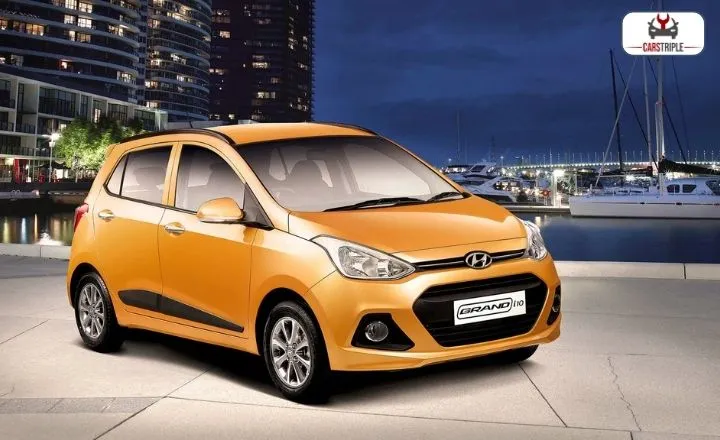
Models like the Outlander PHEV offer eco-friendly driving options without sacrificing performance, making them an attractive choice for environmentally conscious first-time buyers.
Mitsubishi’s reputation for safety and durability ensures peace of mind on the road—a crucial factor for new drivers navigating unfamiliar territory. The diverse range of features and benefits offered by Mitsubishi makes it a worthy consideration for those taking their first steps into car ownership.
How Does Mitsubishi’s Electric and Hybrid Vehicle Lineup Compare to Other Brands?
Mitsubishi’s electric and hybrid vehicle lineup presents a compelling alternative to other brands in terms of innovation and sustainability. The Mitsubishi Outlander PHEV stands out with its impressive all-electric range, making it a top contender for eco-conscious consumers.
The affordability and practicality of Mitsubishi’s electric vehicles offer a distinct advantage over other brands in the market. The company’s commitment to offering efficient and reliable electric options reflects its dedication to providing sustainable transportation solutions for the modern consumer.
Conclusion
Mitsubishi cars can be a worthy investment for those seeking reliable and affordable transportation. With a reputation for durability and innovative technology, these vehicles offer great value for the price. Potential buyers should carefully consider their individual needs and preferences before making a purchase decision.
Through thorough research and test-driving different models, consumers can make an informed choice that aligns with their lifestyle and budget. Whether or not Mitsubishi cars are a worthy investment depends on the specific requirements of the buyer. It’s important to weigh all aspects before deciding to invest in a Mitsubishi vehicle.
FAQS
Are Mitsubishi cars reliable?
Yes, Mitsubishi has a reputation for building reliable and durable vehicles.
Do Mitsubishi cars hold their value well over time?
Yes, many Mitsubishi models have good resale value due to their reliability and long-term durability.
